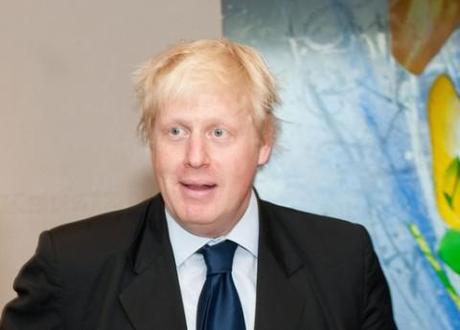
London Mayor Boris Johnson. Photo credit: CBI, http://www.flickr.com/photos/the-cbi/4882467668/in/photostream/
The London press has this week highlighted evidence of alleged voter fraud in the run-up to the London Mayoral election in May this year.
This issue is of acute importance, as opinion polls show that the race between Mayor Boris Johnson and his challenger Ken Livingstone is neck and neck. A small number of votes could make all the difference.
Reports in the London Evening Standard this week have alleged that just 10 weeks before a race touted as “the tightest ever”, electoral registers show that dozens of flats in a key battleground borough, Tower Hamlets, are holding up to eight people per bedroom. It is reported that in one case, 12 adults are still listed as voters in a three-bedroomed flat in Mile End, despite having moved out four months before officials gathered data for the register.
The reports go even further. It is said that Tower Hamlets town hall records show that a total of 64 properties in the borough are registered to 550 voters – an average of three people per bedroom.
Tower Hamlets is no stranger to electoral controversy. Indeed, Scotland Yard launched four separate investigations into claims of electoral fraud inside the borough after mayor Lutfur Rahman was elected in 2010. There were, it is important to stress, no convictions after that investigation.
The Standard’s investigation does, however, throw a searchlight onto some unusual changes in voting patterns in Tower Hamlets. During the 2008 mayoral election, the Labour share of the vote went up by 23 percent while the turnout increased by 35 percent. It is reported that in every other London borough except Newham, the “swing” in the Livingstone vote did not exceed 7 percent in either direction. These statistics do beg certain questions about the state of the electoral roll in Tower Hamlets if nothing else.
And it is not simply the media which says this. Director of the Greater London group at the LSE, Tony Travers, a leading expert on London politics and policy, has said simply, “This does not look good.” He has called for an urgent official investigation and he is right to do so – a flawed electoral roll fundamentally undermines the democratic process.
A Tower Hamlets spokesman has strongly denied the “scurrilous suggestion that voter fraud is rife in our borough”, pointing to the Met’s investigation in 2010 and 2011. The borough, he said, “rigorously” checks suspicious registrations by site visits.
It is not clear, however, what counts as a “suspicious” registration. This will differ from person to person. Such subjectivity is not helpful in the electoral context. The critical test for the returning officer is whether a voter is resident in a property or not. The answer to this question is surely binary: either a person is or is not resident at a particular property. With the right investigation this should be capable of determination. The register, if wrong, needs to be corrected and borough has itself the ability to achieve this.
Electoral registration officers are given broad powers to canvass and correct the electoral register. It is, indeed, their duty by statute to take “all the steps which are necessary” to maintain accurate electoral registers. This can (and I suggest, should) involve multiple unplanned house-to-house visits across the borough. Such officers are required to canvass the franchise in their borough in the October of any given year. On that basis, the electoral register will now be in place for the Mayoral contest.
On the evidence given, the Standard’s investigation has raised prima facie anomalies. These must surely now be investigated ahead of the election because, if not, there will always be doubts about the outcome of any vote if the electorate is not reassured that the allegations have been checked. It can be in the interest of no candidate and no electorate that the results of a ward or borough can be impugned.
Today, the pressure has mounted in parliament and senior MP Bernard Jenkin has urged town hall chiefs to “get a grip and do far more to tackle electoral fraud”. Jenkin has warned that the battle for City Hall could end in the courts because of electoral fraud fears. To challenge an election after the event is costly, cumbersome and unsettling, particularly for a city in the gaze of the world during the countdown to London 2012. London needs to prove that its elections are fraud and scandal free. The last thing which London needs is a bruising judicial review in the High Court.
The time to get a grip is now. Let’s hope that these questions can be resolved in the days and weeks before May 3.

